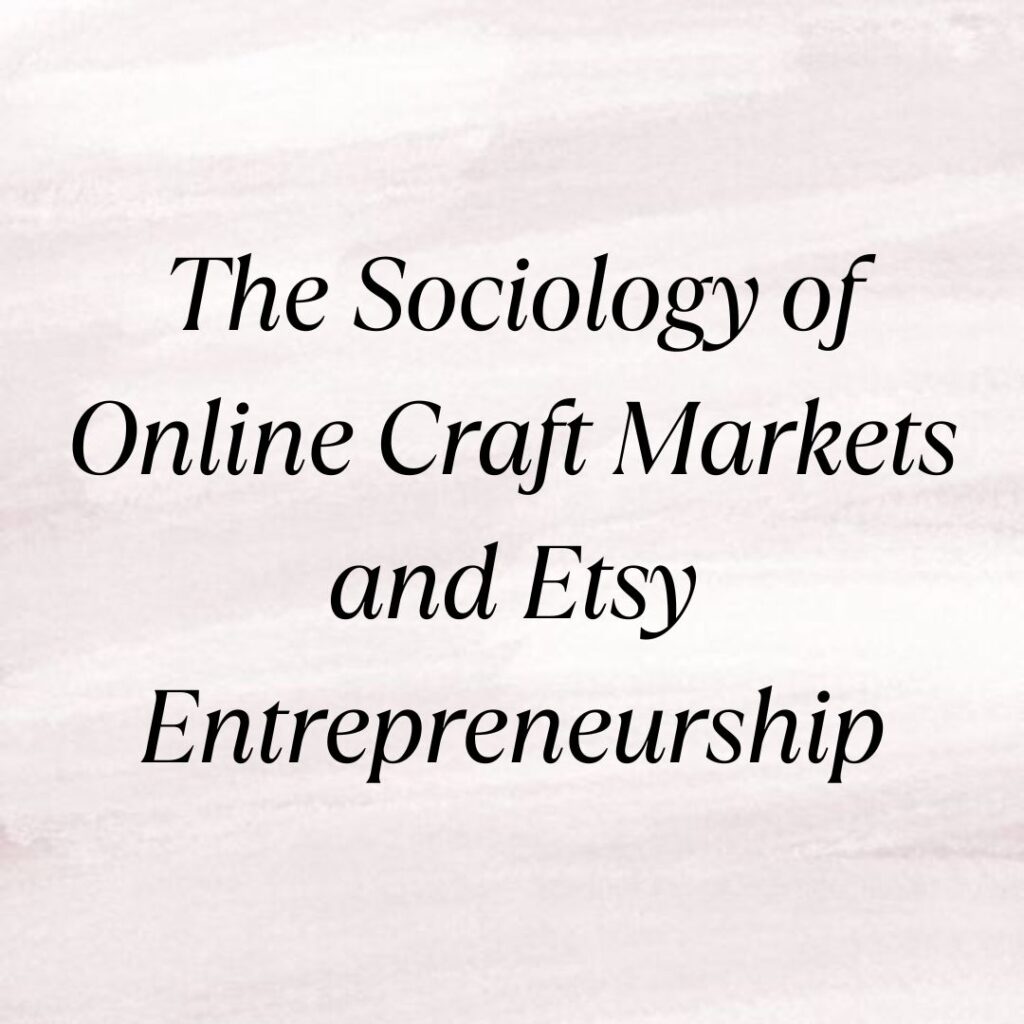In the bustling realm of online commerce, Etsy stands as a beacon for artisans and creatives worldwide. What began as a humble platform in 2005 has grown into a global marketplace, reshaping the way we perceive entrepreneurship and community in the digital age. This article delves into the sociology behind online craft markets, focusing on Etsy as a prime example of how these platforms empower individuals and shape modern economic landscapes.
The Rise of Online Craft Markets
The advent of the internet revolutionized how artisans connect with consumers. Online craft markets like Etsy have democratized access to entrepreneurship, allowing anyone with creative talent and dedication to showcase their wares to a global audience. This shift is not merely economic but deeply sociological, altering traditional notions of work, community, and commerce.
Community and Connection
Central to Etsy’s success is its emphasis on community. Sellers and buyers interact not just as economic actors but as members of a shared ecosystem. This community aspect fosters trust, authenticity, and loyalty—a stark contrast to impersonal transactions common on larger e-commerce platforms. For instance, Etsy sellers often share personal stories behind their crafts, forging emotional connections with buyers seeking unique, handmade items.
Empowerment through Creativity
Etsy empowers artisans by providing them with tools and resources to turn their passions into livelihoods. For many, selling on Etsy is not just about making money but also about validation and fulfillment of creative aspirations. This empowerment extends beyond financial gains to include personal growth and recognition within niche communities.
The Sociology of Entrepreneurship on Etsy
Diversity and Inclusivity
Etsy’s marketplace thrives on diversity. Sellers come from varied backgrounds, cultures, and skill sets, enriching the platform with a tapestry of creative expression. This diversity isn’t just aesthetic but also socio-economic, allowing individuals from marginalized or underrepresented groups to find entrepreneurial success and recognition.
Challenges and Opportunities
While Etsy offers unprecedented opportunities, navigating its marketplace comes with challenges. Competition can be fierce, requiring sellers to innovate continually, market effectively, and adapt to evolving consumer tastes. Moreover, the platform’s policies and algorithms influence visibility and sales, shaping sellers’ strategies and experiences.
Impact on Local Economies
The socio-economic impact of Etsy extends beyond its digital borders. Local economies benefit as artisans purchase materials, invest in local services, and contribute to community activities. This ripple effect underscores Etsy’s role in fostering micro-economies rooted in creativity and craftsmanship.
Relevance in Today’s World
In an era marked by digital transformation and economic uncertainty, Etsy exemplifies resilience and adaptability. Its model of combining technology with traditional craftsmanship resonates with consumers seeking authenticity and sustainability. Moreover, amidst the COVID-19 pandemic, Etsy became a lifeline for many artisans, offering a platform to pivot from physical to online sales—a testament to its relevance and agility in challenging times.
Conclusion
The sociology of online craft markets, epitomized by Etsy, illustrates how digital platforms redefine entrepreneurship, community, and economic participation. Beyond facilitating transactions, Etsy fosters connections, empowers individuals, and shapes cultural narratives around handmade goods. As we navigate a future increasingly shaped by digital interactions, Etsy’s model offers valuable insights into the evolving landscape of work, creativity, and commerce.
Etsy isn’t just a marketplace; it’s a testament to the power of human creativity and community in the digital age—a vibrant tapestry where artisans weave their stories, dreams, and aspirations into every handmade creation.






